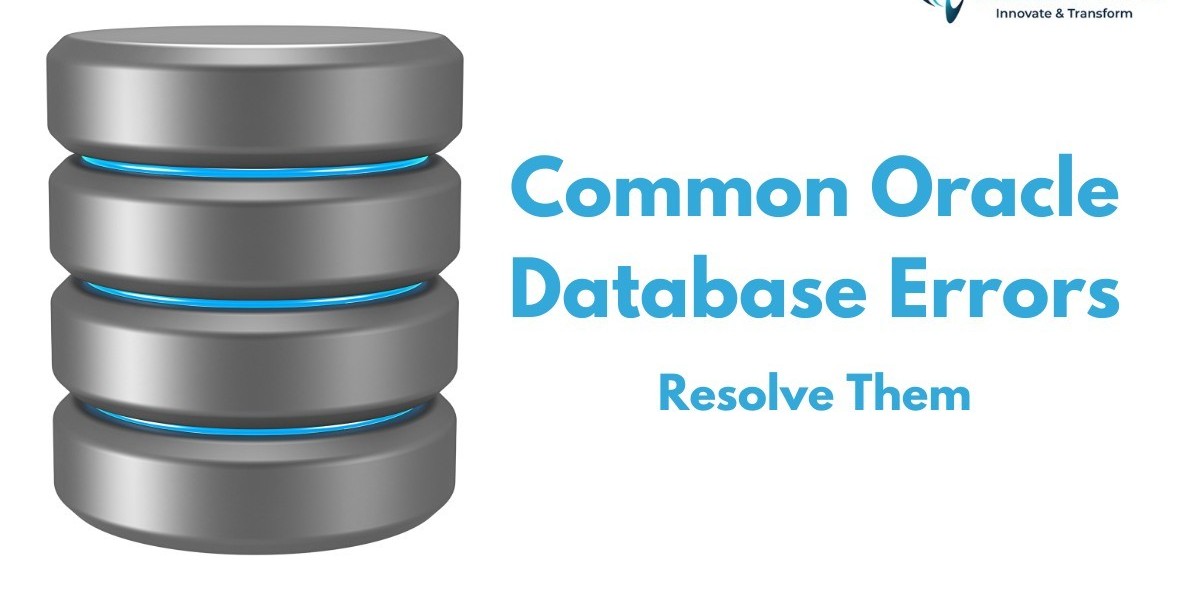Oracle databases are renowned for their robustness and scalability, but like any complex system, they’re not immune to errors. Whether you’re an experienced Database Administrator (DBA) or a business owner relying on Oracle database management, understanding common errors and their resolutions is vital for maintaining smooth operations. In this blog, we’ll explore some of the most frequently encountered Oracle database errors and offer actionable solutions to resolve them effectively.
Understanding Oracle Database Management
Oracle database management encompasses the installation, configuration, monitoring, and maintenance of Oracle databases. This critical process ensures optimal performance, data integrity, and minimal downtime. A well-managed Oracle database is a cornerstone of efficient business operations, enabling organizations to access, analyze, and secure their data seamlessly. Services like Oracle Database Health Check and Oracle DBA Remote Support play a pivotal role in maintaining the reliability and security of these systems.
Common Oracle Database Errors and Solutions
ORA-12154: TNS: Could not resolve the connect identifier specified
Cause: This error typically arises when the Oracle client cannot resolve the connect descriptor specified in the TNSNAMES.ORA file.
Resolution:
Verify the TNSNAMES.ORA file for any syntax errors or incorrect entries.
Ensure that the ORACLE_HOME and TNS_ADMIN environment variables are correctly set.
Use the tnsping command to test connectivity.
ORA-12541: TNS: No listener
Cause: This occurs when the listener is not running or cannot be reached.
Resolution:
Check the status of the listener using the
lsnrctl statuscommand.Start the listener with
lsnrctl startif it’s not running.Ensure the LISTENER.ORA file is correctly configured.
ORA-01555: Snapshot too old
Cause: This error is caused by insufficient undo tablespace or long-running queries consuming undo segments.
Resolution:
Increase the size of the undo tablespace.
Optimize long-running queries to reduce undo usage.
Configure retention settings appropriately in the undo tablespace.
ORA-00060: Deadlock detected while waiting for resource
Cause: This error occurs when two or more sessions are waiting for resources locked by each other, causing a deadlock.
Resolution:
Identify the involved sessions using views like V$LOCK and V$SESSION.
Resolve application logic to avoid circular locking dependencies.
Kill one of the sessions involved in the deadlock if necessary.
ORA-03113: End-of-file on communication channel
Cause: This error is generally linked to network issues, database crashes, or server-related problems.
Resolution:
Check database alert logs for any crash-related details.
Verify network connectivity and troubleshoot firewall settings.
Restart the database if needed and ensure all configurations are intact.
ORA-04031: Unable to allocate shared memory
Cause: This error indicates insufficient shared memory in the System Global Area (SGA).
Resolution:
Increase the size of the SGA or specific pools like the shared pool or large pool.
Use tools like Automatic Memory Management (AMM) to optimize memory usage.
Periodically flush the shared pool to free up memory.
Proactive Measures to Avoid Common Errors
Regularly perform an Oracle Database Health Check to identify potential issues before they escalate.
Implement robust monitoring tools to track performance and resource utilization in real-time.
Keep the database environment updated with the latest patches and upgrades.
Conduct periodic backups and validate their integrity to ensure data recovery when needed.
Leverage Oracle DBA Remote Support services for expert guidance and support in critical situations.
How RalanTech Can Help
At RalanTech, we specialize in providing comprehensive Oracle database solutions tailored to your business needs. From proactive health checks to 24/7 remote DBA support, our team ensures your Oracle database environment operates at peak efficiency. With a focus on minimizing downtime and maximizing performance, RalanTech is your trusted partner in Oracle database management.
Conclusion
Handling Oracle database errors effectively requires a combination of technical expertise and proactive management practices. By understanding common errors and their solutions, you can ensure the reliability and performance of your Oracle database systems. For expert assistance and reliable services, consider partnering with professionals like RalanTech to stay ahead in managing your Oracle databases.
Investing in the right tools, strategies, and support ensures your database systems continue to empower your business operations seamlessly.










